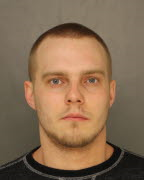President Barack Obama didn’t sidestep the presence of one notable but controversial guest Thursday at the National Prayer Breakfast, an annual gathering that draws faith leaders from around the country.
Obama spent most of his remarks focusing on the power of religion for good around the world, but also the rise of extremists who twist religion to perpetrate violence. But he opened his remarks by welcoming the Dalai Lama, the exiled Tibetan leader whose presence at the same event as the President could prompt a diplomatic fuss from Chinese leaders
“[The Dalai Lama is] a powerful example of what it means to practice compassion who inspires us to speak up for the dignity and freedom of all,” Obama said.
The Tibetan spiritual leader was in the audience but was not slated to speak and the White House declined to say whether the two leaders will meet at the event. The Dalai Lama’s attendance also drew demonstrators outside the Washington Hilton, where the event is held, some calling for a “Free Tibet” while others protested the Dalai Lama, accusing him of religious intolerence.
An encounter between Obama and the Tibetan leader would be the fourth meeting of the two leaders. And each encounter proves an exercise in diplomatic finesse, with the White House always stressing it does not support Tibetan independence from China while also expressing concerns over human rights in the disputed region.
Previous meetings have prompted Chinese officials to accuse the U.S. of meddling in its domestic affairs.
Speaking after Sister Mary Scullion, an advocate for the homeless in Philadelphia, and Kent Brantely, the doctor who contracted Ebola while fighting the epidemic in West Africa, Obama honed in on the contradiction between religious do-gooders and extremists who twist their religion for evil.
“We see people inspiring people to lift up one another to feed the hungry and care for the poor and comfort the afflicted,” Obama said. “We see faith driving us to do right but we also see faith being twisted and distorted. Used as a wedge or worse, sometimes used as a weapon.”
Obama spoke out against the terrorism “from a school in Pakistan to the streets of Paris” and the rise in anti-Semitism in Europe, all “so often perpetrated in the name of religion.”
“No god condones terror,” Obama said. “We have to speak up against those who would misuse His name.”
Obama also emphasized the importance of freedom of religion throughout the world and the need to preserve the separation of church and state in the United States.
“The freedom of religion is a value that we will continue to protect at home and stand up for around the world and is one that we guard vigilantly here in the United States,” Obama said.
The keynote speaker, former top NASCAR driver Darrell Waltrip, also delivered a lighter moment before winding into a sermon-like address that focused on his journey toward his intense faith.
Waltrip joked that he was the perfect speaker for the occasion since he is neither a brain surgeon nor a candidate for office, a wry reference to Dr. Ben Carson, who rose to political fame two years earlier after he criticized the direction of the country with Obama just feet away.
The breakfast was once again co-chaired by members of Congress from both parties, with Sen. Bob Casey, a Democrat from Pennsylvania, and Mississippi’s Republican Sen. Roger Wicker steering the event this year.
Last year’s event included New York Democrat Rep. Eliot Engel reading a passage from the Hebrew text of the book of Ecclesiastes and remarks from Transportation Secretary Ray Lahood.
USAID Administrator Rajiv Shah, a Hindu, delivered the keynote address at the event last year.



